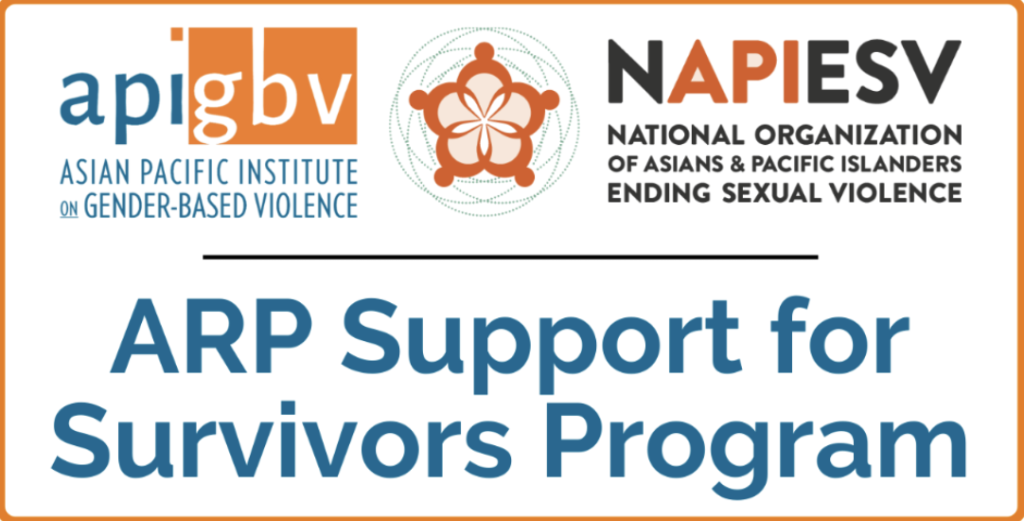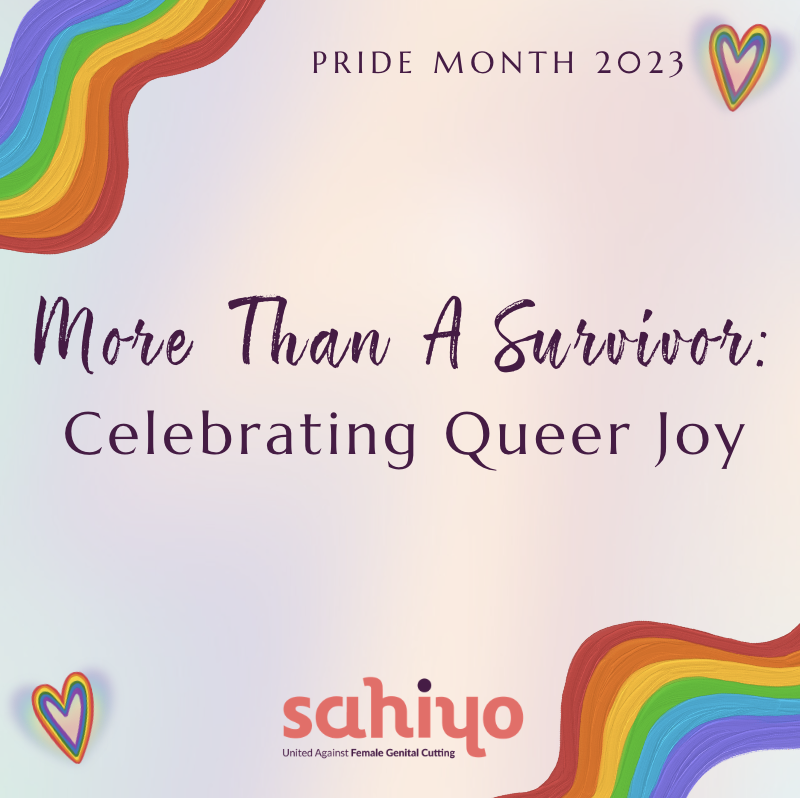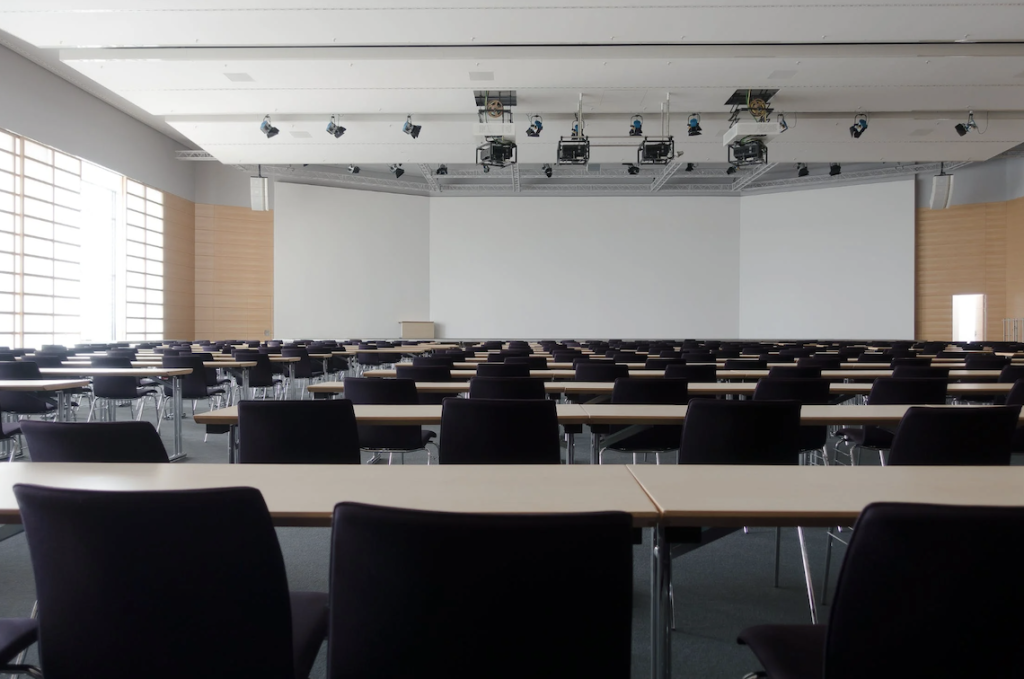SAHIYO JOINS OVER 40 COMMUNITY ORGANIZATIONS SERVING SEXUAL ASSAULT AND DOMESTIC VIOLENCE SURVIVORS IN $13.2 MILLION AMERICAN RESCUE PLAN INITIATIVE

ARP Support for Survivors Program supports culturally-specific, community-based projects supporting survivors of domestic violence and sexual assault from Asian and Pacific Islander Communities in the United States and the Pacific. Sahiyo U.S. will be joining over 40 organizations, both nationally and locally, in an effort to provide culturally-specific, community-based support for survivors of domestic violence and sexual assault from Asian American and Pacific Islander (AAPI) communities across the U.S. and Pacific. The $13.2 million dollar initiative from the Family Violence Prevention and Services Act (FVPSA) under the 2021 American Rescue Plan (ARP) will be will be the first time API-GBV will be distributing two years of funding to culturally specific organizations that serve sexual assault and domestic violence survivors in AAPI communities; this includes survivors of female genital mutilation/cutting (FGM/C), marking huge progress that this harmful practice is being recognized as a form of sexual assault. Under the ARP Support for Survivors Program, subgrants will be distributed through the Domestic Violence and Sexual Assault Capacity Building Fund to assist organizations like Sahiyo U.S. to provide services for survivors of gender-based violence in Asian/Asian American, Native Hawaiian, Pacific Islander (AANHPI), and Middle Eastern (ME) communities in the United States and U.S. territories. “Sahiyo U.S. is honored to be included as one of the 40+ organizations awarded this grant. For too long the issue of female genital cutting has been viewed as a cultural issue, this grant helps to affirm that FGM/C is a form of gender-based violence and is a form of sexual assault that impacts individuals from AAPI communities as well. For years, Sahiyo has heard stories from FGM/C survivors from these communities and we have sought to support them in sharing their experiences and connecting with one another to collectively heal, and band together to prevent the next generation from undergoing this form of harm.” ~ Mariya Taher, Sahiyo Co-Founder & U.S. Executive Director The ARP Support for Survivors Program will address the emergent needs of survivors, and the programs that serve them, resulting from the COVID-19 public health emergency. The work will also promote strategic partnership development and collaboration in responding to the COVID-19 public health emergency on survivors of gender-based violence. “API-GBV is honored and proud to welcome organizations like Sahiyo U.S. who are at the forefront of sexual assault and dometic violence work amid the COVID-19 pandemic. It is essential to have this kind of funding distributed to communities with organizations deeply rooted in their environmental and cultural awareness and expertise in supporting survivors. The AAPI community is often left out of the public narrative on sexual assault and domestic violence and through this important work we will have the opportunity to support organizations who directly support survivors in our communities.” ~ Monica Khant, Executive Director of API-GBV Sahiyo U.S. was selected by a committee of peer reviewers with extensive experience in the domestic violence and sexual assault fields, and working in AANHPI and ME communities in the U.S. Funding provided under the ARP Support for Survivors grant will advance our survivor and community-based Activists Retreat program. The expanded program will help to further strengthen relationships and networks among survivors and impacted community members who need a supportive structure, but who are often geographically distant from one another. The program will also allow for best practices and tools to be shared not only during the workshops, but throughout the year. As a result, FGM/C survivors and impacted community members are able to enhance their own well-being and enhance skills to more effectively raise awareness in their respective communities about the need to end this harmful form of sexual assault. Sahiyo U.S. is among 15 organizations serving AANHPI communities and 14 organizations serving ME communities, including projects focused on prevention, culturally specific services for Queer and Trans survivors, virtual services and data security, culturally rooted practices in healing and resiliency, and engaging men and youth. For a complete list of grantees, visit this link.
More Than A Survivor: Celebrating Queer Joy Campaign

At Sahiyo, we recognize that our work to end female genital cutting (FGC) does not exist outside of Queer liberation, and members of the survivor community who are Queer have distinct experiences that deserve to be seen, heard, and made room for in the FGC sphere. Whether this means incorporating more gender-inclusive language, clarifying that outdated statistics only capture the experiences of women and girls, or providing a sense of community for Queer survivors, we are just getting started. Pride Month is a time for celebration, protest, and remembrance, of the challenges, and joys, surrounding Queerness and Queer liberation. Occurring every June in homage to the Stonewall Riots, Pride speaks to the enduring spirit of resistance against challenges that have historically affected, and continue to affect, the Queer community. To this end, Pride has a multifaceted purpose: it is as much advocating against the ongoing oppression of Queer folks and calling attention to human rights abuses occurring globally as it is dancing in the street and raucously cheering at a parade. To celebrate this Pride Month, we chose to uplift an angle of FGC survivorship and Queerness that honors and celebrates joy. Inspired by a conversation with Dena Igusti, a trans non-binary survivor of FGC, the significance of a “joy-centered campaign” became apparent: “I think it would be really great to see more campaigns where it’s seeing folks who are also Queer, who are also survivors, but also, overall, are also just doing well… Just hanging out, having fun, and also showing us outside of just trauma. I think it’s one of those things, a combination of wanting to know that exists and that I’m not alone… But also I think it is also nice to know other aspects of these survivors outside of what was done to them.” To Dena, seeing other survivors, or non-binary folks, outside of the context of their trauma gives them hope: “What was so important for me was… seeing them outside of [survivorship] and after that; looking back and being like, ‘Yeah, I went through that.’ It was a wild ride, but they get to have this joy and hope of saying everything in past tense. ‘This was horrible.’ ‘This was awful.’ ‘This was painful, but I’m here now.’” While we continue to push for inclusivity and intersectionality beyond the scope of this month, which includes discussing and working to address the unique challenges that affect Queer survivors, we hope to also uplift and celebrate our community members who are More Than A Survivor; they are here, Queer, and finding their joy.
Tufts University hosts panel to raise awareness of FGC

On April 14th, Sahiyo U.S.’s Mariya Taher was invited to speak at a panel discussion on female genital cutting (FGC) by Women in International Relations (WIIR), an organization that is part of Tufts’ Institute for Global Leadership at Tisch College. WIIR hosted a panel on FGC as part of a broader conference on the topic of public health and women’s healthcare. Other panelist included Aminata Bah, Copresident of the End FGM European Network, and Dr. Salma Abdalla. WIIR aims to explore opportunities for women studying international relations at Tufts, as well as to create a space of dialogue and empowerment through mentorship, networking, and academic discussions and events on women’s rights issues.
